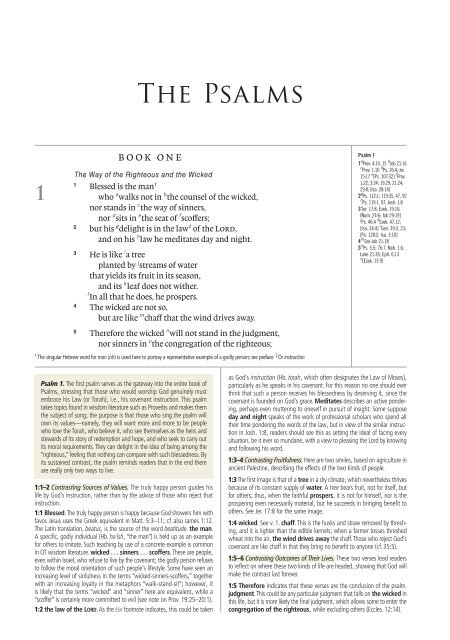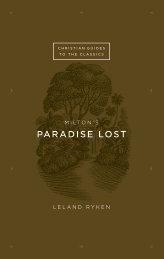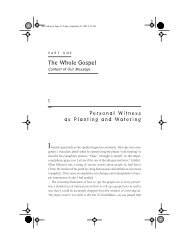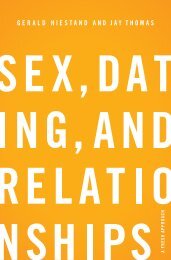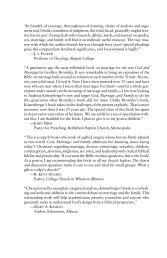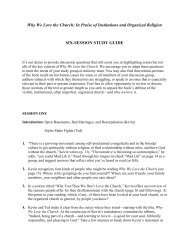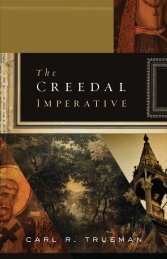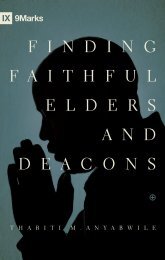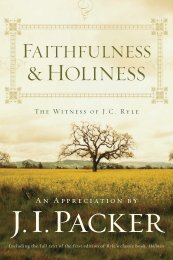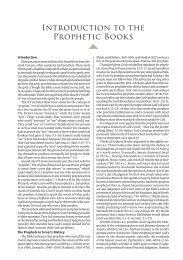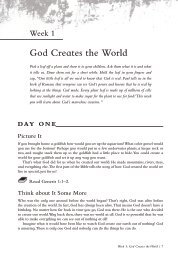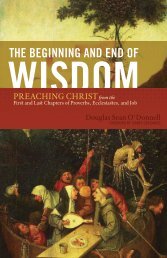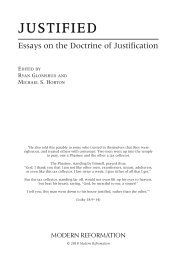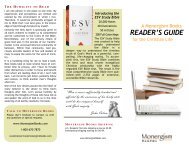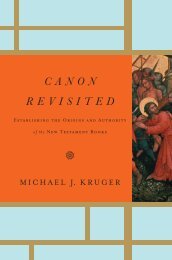The <strong>Psalms</strong>1Book OneThe Way of the Righteous and the Wicked1Blessed is the man 1who a walks not in b the counsel of the wicked,nor stands in c the way of sinners,nor d sits in e the seat of f scoffers;2but his g delight is in the law 2 of the Lord,and on his h law he meditates day and night.3He is like i a treeplanted by j streams of waterthat yields its fruit in its season,and its k leaf does not wither.l In all that he does, he prospers.4The wicked are not so,but are like m chaff that the wind drives away.5Therefore the wicked n will not stand in the judgment,nor sinners in o the congregation of the righteous;Psalm 11 a Prov. 4:14, 15 b Job 21:16c Prov. 1:10 d Ps. 26:4; Jer.15:17 e [Ps. 107:32] f Prov.1:22; 3:34; 19:29; 21:24;29:8; [Isa. 28:14]2 g Ps. 112:1; 119:35, 47, 92h Ps. 119:1, 97; Josh. 1:83 i Jer. 17:8; Ezek. 19:10;[Num. 24:6; Job 29:19]j Ps. 46:4 k Ezek. 47:12;[Isa. 34:4] l Gen. 39:3, 23;[Ps. 128:2; Isa. 3:10]4 m See Job 21:185 n Ps. 5:5; 76:7; Nah. 1:6;Luke 21:36; Eph. 6:13o [Ezek. 13:9]1 The singular Hebrew word for man (ish) is used here to portray a representative example of a godly person; see preface 2 Or instructionPsalm 1. The first psalm serves as the gateway into the entire book of<strong>Psalms</strong>, stressing that those who would worship God genuinely mustembrace his Law (or Torah), i.e., his covenant instruction. This psalmtakes topics found in wisdom literature such as Proverbs and makes themthe subject of song; the purpose is that those who sing the psalm willown its values—namely, they will want more and more to be peoplewho love the Torah, who believe it, who see themselves as the heirs andstewards of its story of redemption and hope, and who seek to carry outits moral requirements. They can delight in the idea of being among the“righteous,” feeling that nothing can compare with such blessedness. Byits sustained contrast, the psalm reminds readers that in the end thereare really only two ways to live.1:1–2 Contrasting Sources of Values. The truly happy person guides hislife by God’s instruction, rather than by the advice of those who reject thatinstruction.1:1 Blessed. The truly happy person is happy because God showers him withfavor. Jesus uses the Greek equivalent in Matt. 5:3–11; cf. also James 1:12.The Latin translation, beatus, is the source of the word beatitude. the man.A specific, godly individual (Hb. ha’ish, “the man”) is held up as an examplefor others to imitate. Such teaching by use of a concrete example is commonin OT wisdom literature. wicked . . . sinners . . . scoffers. These are people,even within Israel, who refuse to live by the covenant; the godly person refusesto follow the moral orientation of such people’s lifestyle. Some have seen anincreasing level of sinfulness in the terms “wicked-sinners-scoffers,” togetherwith an increasing loyalty in the metaphors “walk-stand-sit”; however, itis likely that the terms “wicked” and “sinner” here are equivalent, while a“scoffer” is certainly more committed to evil (see note on Prov. 19:25–20:1).1:2 the law of the Lord. As the esv footnote indicates, this could be takenas God’s instruction (Hb. torah, which often designates the Law of Moses),particularly as he speaks in his covenant. For this reason no one should everthink that such a person receives his blessedness by deserving it, since thecovenant is founded on God’s grace. Meditates describes an active pondering,perhaps even muttering to oneself in pursuit of insight. Some supposeday and night speaks of the work of professional scholars who spend alltheir time pondering the words of the law, but in view of the similar instructionin Josh. 1:8, readers should see this as setting the ideal of facing everysituation, be it ever so mundane, with a view to pleasing the Lord by knowingand following his word.1:3–4 Contrasting Fruitfulness. Here are two similes, based on agriculture inancient Palestine, describing the effects of the two kinds of people.1:3 The first image is that of a tree in a dry climate, which nevertheless thrivesbecause of its constant supply of water. A tree bears fruit, not for itself, butfor others; thus, when the faithful prospers, it is not for himself, nor is theprospering even necessarily material, but he succeeds in bringing benefit toothers. See Jer. 17:8 for the same image.1:4 wicked. See v. 1. chaff. This is the husks and straw removed by threshing,and it is lighter than the edible kernels; when a farmer tosses threshedwheat into the air, the wind drives away the chaff. Those who reject God’scovenant are like chaff in that they bring no benefit to anyone (cf. 35:5).1:5–6 Contrasting Outcomes of Their Lives. These two verses lead readersto reflect on where these two kinds of life are headed, showing that God willmake the contrast last forever.1:5 Therefore indicates that these verses are the conclusion of the psalm.judgment. This could be any particular judgment that falls on the wicked inthis life, but it is more likely the final judgment, which allows some to enter thecongregation of the righteous, while excluding others (Eccles. 12:14).
943 Psalm 2:106 p Ps. 31:7; 37:18; 144:3;Nah. 1:7; [John 10:14;2 Tim. 2:19] q Ps. 37:5Psalm 21 r Cited Acts 4:25, 26 s [Ps.46:6]2 t Ps. 18:50; 20:6; 45:7;89:203 u Jer. 5:54 v Ps. 11:4; 29:10; [Isa.40:22] w Ps. 37:13; 59:8;Job 22:19; Prov. 1:265 x Rev. 6:16, 176 y Prov. 8:23 z 2 Sam. 5:7;Ps. 110:2 a Ps. 3:4; 15:1;43:3; 99:97 b Rom. 1:4; Cited Acts13:33; Heb. 1:5; 5:58 c [Ps. 72:8; 89:27; Dan.7:14]9 d Ps. 89:23; Job 34:24e Rev. 2:27; 12:5; 19:15f Isa. 30:14; Jer. 19:1126for the Lord p knows q the way of the righteous,but the way of the wicked will perish.The Reign of the Lor d’s Anointed1 r Why do s the nations rage 1and the peoples plot in vain?2The kings of the earth set themselves,and the rulers take counsel together,against the Lord and against his t Anointed, saying,3“Let us u burst their bonds apartand cast away their cords from us.”4He who v sits in the heavens w laughs;the Lord holds them in derision.5Then he will speak to them in his x wrath,and terrify them in his fury, saying,6“As for me, I have y set my Kingon z Zion, my a holy hill.”7I will tell of the decree:The Lord said to me, b “You are my Son;today I have begotten you.8Ask of me, and I will make the nations your heritage,and c the ends of the earth your possession.9You shall d break 2 them with e a rod of ironand dash them in pieces like f a potter’s vessel.”10Now therefore, O kings, be wise;be warned, O rulers of the earth.1 Or nations noisily assemble 2 Revocalization yields (compare Septuagint) You shall rule1:6 Knows must be something stronger than simply “knows about,” sinceGod knows about the wicked and their deepest secrets (cf. 94:8–11). Somehave argued that the word means “cares for,” but it is better to take this as“knows with affection and approval, i.e., prefers” (cf. Gen. 18:19; Amos 3:2).will perish. That is, end in destruction.Psalm 2. When the people of God sing Psalm 2, they remind themselvesof how God made David and his descendants to be kings in orderto enable them to fulfill the very purpose for which Abraham was called(to bring blessing to all nations, Gen. 12:1–3). Thus it can be called aroyal psalm. The pious Israelite realizes that his hope of blessing is nowirrevocably tied to the house of David (cf. 2 Sam. 7:12–16), and so heprays that God will keep the king pure. At a time when the Gentile kingdomsthat are part of the Davidic empire seek to throw off Israelite rule,this psalm recalls the promises made to the Davidic king at his coronationand notes that the Gentiles will find lasting joy only as subjects of thisking. With its prospect of a worldwide rule for the house of David, thepsalm also looks to the future, when the Davidic Messiah will indeedaccomplish this; in fact, the scope of such an accomplishment calls fora ruler who is more than a mere man.2:1–3 The Gentile Kings in Revolt. In vv. 1–2 several kings of Gentile peopleswho are vassals of the Davidic king propose a revolt to throw off Israelite rule;in v. 3 they speak their goal.2:2 Anointed. Samuel anointed both Saul (1 Sam. 10:1) and David (1 Sam.16:13), setting them apart as king, whose task was to rule Israel and to embodycovenant faithfulness. The word Messiah comes from transliterating the Hebrewword for “Anointed,” and the word Christ comes from translating “Anointed”into Greek. For the Gentiles to rebel against the heir of David is to rebel againstthe Lord who installed him; it is also to cut themselves off from their only hopeof knowing the one true God. In Acts 4:25–26, the early Christians saw thepersecution they faced as the same kind of foolish rebellion.2:4–6 Heaven’s Perspective on the Revolt. Since the Lord is not dismayed,neither do his people need to be. In fact, God laughs at the rebels and declareshis firm purpose to establish the throne of David as he has promised.2:7–9 The Davidic King Speaks. The king recalls what God had said at hiscoronation. Lying behind this is the promise that the line of David will be sureforever before the Lord (2 Sam. 7:16) and that the obedience of the peopleswill come to the ruler from the tribe of Judah (Gen. 49:10), together with thevery purpose for choosing Abraham and his offspring.2:7 decree. That is, the divine oracle spoken when the king took his throne.The Lord said. Although many suppose that this psalm is for the crowningof a king, the past tense indicates that the king recalls the oracle at a latertime of trouble. You are my Son. In 2 Sam. 7:14, God says that he will takethe heir of David as a “son.” The people as a whole are called the “son ofGod” (see Ex. 4:22–23; Ps. 80:15; Hos. 11:1), and the king is called the “sonof God” because he represents and embodies the people (see also Ps. 89:27).Hebrews 1:5 brings Ps. 2:7 together with 2 Sam. 7:14: this shows that theargument of that book assumes that Jesus is the messianic heir of David (theSon of God), into whom God has also folded the priestly office. In Acts 13:33(a speech of Paul) and Rom. 1:4, Paul portrays the resurrection of Jesus as hiscoronation, his entry into his Davidic rule.2:8 nations. That is, the Gentiles, including those in revolt (v. 1). The primarymessianic picture of the OT is of the heir of David who will lead his people inbringing the light to the nations, by making them his subjects; this is how thenations of the earth will find blessing for themselves in him (see Gen. 22:18;see also Ps. 72:8–11, 17); thus Paul looks forward to the obedience of faithamong all the nations (Rom. 1:5).2:9 break (Hb. tero‘em). As the esv footnote says, the Septuagint (used inRev. 2:27; 12:5; 19:15) renders this as “rule”; this comes from using the sameHebrew consonants with different vowels (tir‘em).2:10–12 Advice to the Gentile Kings. The kings must understand that theruler whom they reject is not just another human ruler but is God’s ownappointed king for the sake of the whole world. Therefore they serve theirbest interest by submitting to David’s heir.2:10 kings . . . rulers of the earth. See v. 2.


